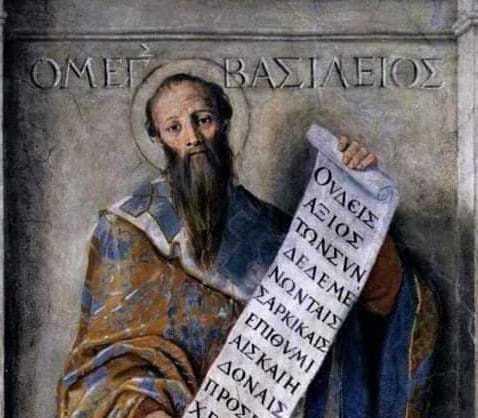BASIL THE GREAT (about 330-379)
Saint Basil was born in Caesarea of Cappadocia (Turkey) to a wealthy Christian family. He moved from his hometown to Constantinople and Athens, the cultural centre of the Empire, to deepen his studies. When he returned to his hometown, he decided to start teaching; he received baptism and then he embraced the ascetic life: he donated all his assets to the poor and he retired himself in a cenoby on the banks of Iris river, near Neocaesarea.
Here, he continued to cultivate his interest in theology and he put his commitment to the Trinitarian dispute, in defence of the orthodox doctrine, against the Aryan heresy.
He wrote for his monks the "Big Rule” and the “Small Rule" that would influence later the whole Eastern and Western monasticism.
The Basil's Rules included the community dimension of monastic life and no longer the eremitical one; in fact, he prefered the cenoby to the hermitage- a "monastery of common life” that enabled monks to socialize, study the Scriptures, pray, do penance, dedicate themselves to the manual work and to the service of the poor and needy people.
In 370, he became bishop of Caesarea and his episcopal action was so fruitful and zealous that it earned him the title of "The Great". He dedicated his life mostly to the support of the poor and the diseased and he built a citadel - "Basilade"- with the function of an inn, hospice, hospital and later hospital. Tired from the many responsibilities, the austerity of life and the illnesses, Basil died in Caesarea of Cappadocia in 379 more or less.

